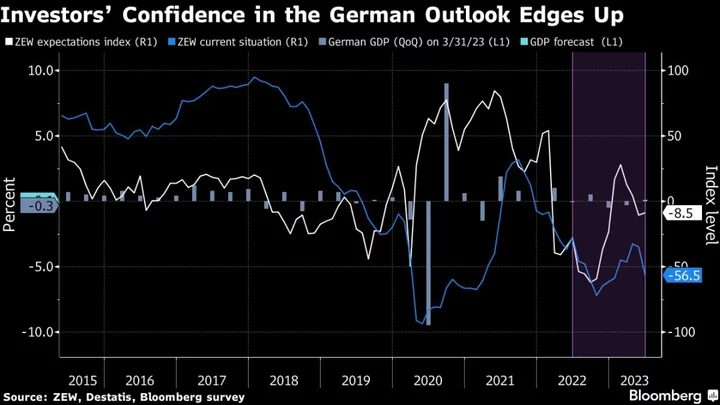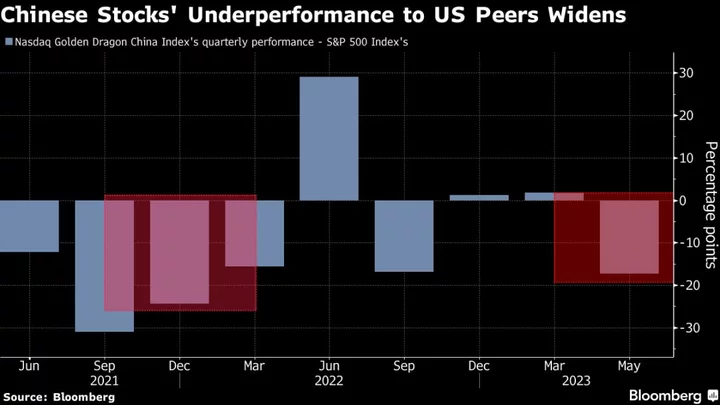Investor confidence in Germany’s economy unexpectedly improved, though doesn’t signal a strong recovery from its first recession since the pandemic.
The ZEW institute’s gauge of expectations rose to -8.5 in June from -10.7 in May. Economists polled by Bloomberg had predicted a decline to -13.5. An index of current conditions plunged.
“Experts do not anticipate an improvement in the economic situation during the second half of the year,” ZEW President Achim Wambach said Tuesday in a statement. Even so, the downturn is “generally not considered particularly alarming.”
The fate of Europe’s biggest economy is crucial to the recovery of the 20-nation euro zone, which data last week showed also succumbed to a mild recession during the winter. Forecasts suggest slow growth for Germany in the coming quarters. But elevated inflation, rising interest rates and struggling manufacturers are all weighing.
Factory orders unexpectedly fell in April following a slump of more than 10% the previous month. Industrial output also came in weaker than predicted, though a resurgent services sector is still supporting activity.
Meanwhile, unprecedented monetary tightening by the European Central Bank is still feeding through to the economy. Officials are predicted to raise borrowing costs by another 25 basis points this week and signal that there’s more to come.
--With assistance from Joel Rinneby and Kristian Siedenburg.









